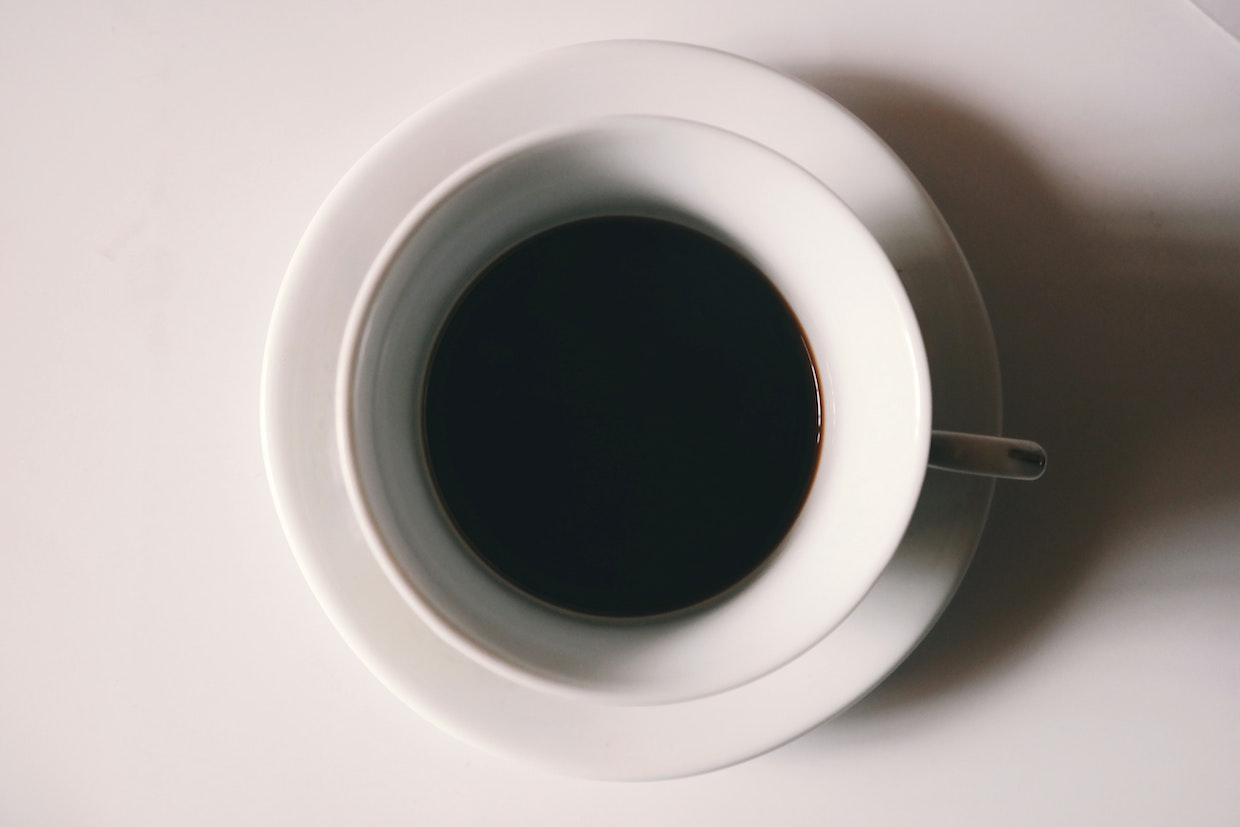How many calories are in a cup of black coffee? The short answers are: either about 5 or about negative 100, depending on how you drink down the science.
You may be familiar with the counterintuitive idea of negative calories for foods such as celery, grapefruit or lettuce. Yet none of these popular fruits or vegetables actually have negative calories, so how can coffee, you ask?
To get to the bottom of this, we must first understand the nature of calories.
What is a calorie?
A calorie is a unit of measurement more similar to a British thermal unit (Btu) than to anything pertaining to biology. In fact, a calorie is the metric equivalent of a Btu. Where a Btu is the amount of energy required to raise 1 pound of water 1 degree fahrenheit, a calorie is the amount of energy required to raise 1 kilogram of water by 1 degree celsius.
Anything that burns can be assigned a caloric value. In a strict sense, propane, wood, gasoline, etc., all have caloric values. However, our bodies lack the ability to digest any of those calories, so they’re termed indigestible calories.
Many types of fiber found in popular fruits and vegetables are similarly indigestible, and therefore contribute to common associations between fibrous foods and increased weight loss. In other words, 100 calories from something fibrous like kale isn’t the same as 100 calories from butter, which isn’t the same as 100 calories from a high protein source, and so on.
Of the 100 kale calories, only a relatively small portion of those can be metabolized by the body, with the rest being primarily cellulose and other indigestible fiber that the body cannot turn into usable energy. The same cannot be said of starchy, carbohydrate-laden foods or fats that the body can readily turn into chemical energy and store as fat.
So, a cup of coffee has about 5 total calories in it, but only a portion of those will be digestible calories, which would place it in the low-calorie food category. Which again begs the question: How can coffee be a negative calorie food?
The answer is caffeine
Well, mainly caffeine, but also related chemical compounds and chlorogenic acid found in coffee. Caffeine and similar compounds in coffee stimulate our metabolisms through a complex cascade of chemical reactions that result in our enjoyment, but also in our bodies burning significantly more calories than they would without the caffeine.
There are further benefits to metabolism and weight loss in the form of appetite suppression and, in the case of chlorogenic acid, prevention of fat and carbohydrate absorption, but those benefits are much harder to measure than simple metabolic rates.
What is clear is that 100 milligrams of caffeine — about what is in a rather weak 8-ounce coffee — causes healthy humans to burn an additional 75 to 150 calories via stimulation of the metabolism. So if we subtract the calories burned from the 5 total calories present in that cup, we’re left with something in the range of negative 70-145 calories.
However, before you start binging on your favorite indulgent foods and washing them down with coffee as a counter-measure, consider tolerance and diminishing returns. Over time the body gets used to caffeine intake, especially when the caffeine is consumed at a routine time every day.
The body’s ability to adapt its chemistry to Pavlovian stimuli is truly fascinating — as is the miracle of coffee.
Further Reading
- Caffeine: a double-blind, placebo-controlled study of its thermogenic, metabolic, and cardiovascular effects in healthy volunteers
- Normal caffeine consumption: influence on thermogenesis and daily energy expenditure in lean and postobese human volunteers
- Caffeine and coffee: their influence on metabolic rate and substrate utilization in normal weight and obese individuals
Note: Any opinions expressed in this piece are solely those of the author/s and do not necessarily represent the views of the Daily Coffee News.
Thomas Chandler
Thomas Chandler is a green coffee buyer, GMP supervisor, and coffee roaster at Black Oak Coffee Roasters. Holding degrees in microbiology and chemistry, Chandler also provides consulting services for the food and beverage industry.
Comment
2 Comments
Comments are closed.








Interesting article, thanks! I presume the tolerance you mention is related to the adenosine receptors? So am I to understand that the increased metabolism is solely the result of sufficient AR ‘fills’ by caffeine molecules? And so, once additional AR receptors are produced, there is a lower percentage of receptors filled by caffeine and therefore a lower metabolism??
@Craig, that may be the case, but absolutely any stimuli causes tolerance. Sounds, loud or quiet, smells or tastes, good or bad, absolutely every sense we possess will slowly become immune to any given stimuli, including our digestion and the affects of caffeine.